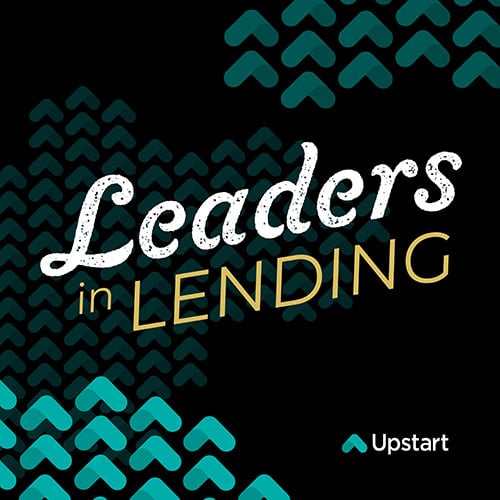Leaders in Lending | Ep. 134
Data Ownership and Industry Collaboration in Fintech
Join our host, Matt Snow and guest Sanjib Kalita, Head of Industry at Fintech Meetup, as they explore key themes such as data technology, blockchain, and the importance of networking in the industry's evolution.


GUEST SPEAKER
Sanjib Kalita

ABOUT
Fintech Meetup
Fintech meetup combines fintech’s largest ever meetings program, a network of co-located events as well as fresh approaches to content and speakers. Fintech Meetup achieved an unprecedented Net Promoter Score (NPS) of 53 for its inaugural 2023 event, and is the best value for money, highest ROI fintech event in the industry. The next Fintech Meetup will be held at the Venetian, Las Vegas on March 3-6, 2024, and is the must-attend Q1 kick-off event for the fintech industry.
Key Topics Covered
- Responsible data practices and the need for consumer engagement in the credit industry
- The potential of blockchain technology for decentralizing data and building trust in credit decisions
- The significance of networking and collaboration in the fintech industry for startups, partnerships and staying informed

“And so with Blockchain, what we've been able to do is push control to the edges without sacrificing security.”


“I think you're seeing more partnerships, like even like, like, with some huge companies, But now you ask, ‘okay, where's the overlap? What are we both trying to drive towards? And how can we get to that solution faster?'”
EPISODE RECAP & SUMMARY
Bad data can have a tangible, negative impact on consumers. Think of a time you were getting ready to make a serious purchase like a house or car; the last thing you’d want is for the wrong information to be attached to your name.
If you were a man about to get married and buy his first home in New York — like Sanjib Kalita, Head of Industry at Fintech Meetup, was a decade or so ago — you wouldn’t want your credit history saying you’re married to a man in California and have multiple foreclosures for auto loans.
Kalita’s experience with bad data impassioned him to continue the good fight of always putting consumer impact first when working in fintech, and he’s kept that value throughout his career, from chip designing to Google.
This mission begs the question: What does data ownership look like in the credit industry, and how can we support positive consumer impact?
Responsible data practices and the need for consumer engagement in the credit industry
What are the two most sensitive types of data? If you said health history and financial history, we’re on the same page.
Think about how many times you’ve had to sit in a doctor's waiting room filling out paperwork and reliving your entire medical history, only to have to do it again in a few months.
Where does that data go? How is it used?
More often than not, it’ll be stored in your file, sure — but there’s also the chance it’ll be leveraged in marketing efforts and advertisements, meaning that information passes through more “hands” than you’d ever expect.
You can use the same analogy for financial/credit history, and the need for transparency in data is higher than ever in today’s hyper-personalized world.
With Kalita’s company — Guppy — putting the consumer in control is a top priority, and Blockchain plays a sizable role in achieving that goal.
“With blockchain, we've been able to push control to the edges without sacrificing security,” he said. “Because without blockchain, you have these black box systems that are supposedly highly secure, and because they're tightly controlled, the idea is that security is easier to manage.”
Black box systems have their limitations, as displayed in the Equifax hack in 2017, which resulted in a global settlement after exposing the data of 147 million people. Blockchain helps remove those concerns.
It may feel like an insurmountable challenge to aim for clean data as a majority, but it’s possible with the right tech and the proper strategy.
“By engaging the consumer, I'm hoping for a bit of a cleansing of the data also, building a stronger belief in what the data says,” Kalita said. “I think there's always going to be some elements of bad data — that's the reality of entropy and being part of the universe. It's not the silver bullet, but you can make a positive impact.”
The alignment of data and purpose is a key component to delivering a more consumer-focused experience with data sharing and application.
The significance of networking and collaboration in fintech
Like any well-formed strategy, buy-in is necessary. Support. Teamwork. Collaboration. A network dedicated to bringing the vision into reality consistently and accurately.
This approach is especially true for startups. Building partnerships and staying informed on industry movements are cornerstones of a thriving company.
“Some of the connections you can make in an event are the prime value proposition,” Kalita said. “As Money 20/20 grew, it was — because there's so many people — you're hoping for a bit of serendipity.”
Making it a priority to attend events such as the above increases the likelihood of:
- Mission investment
- Valuable connections
- Accelerated results
The strategy doesn’t end at simply showing up to these events. It takes thoughtful conversations and connections to forge relationships and see tangible results.
The value of tailoring talking points to match the listener
One-on-one conversations can be more lucrative than keynote speaking, and they offer a unique opportunity for customization.
Taking your conversation partner into consideration is a key step to reaching them and winning them to your mission. A conversation with a banker about fintech solutins will sound different from one with a retailer or a regulator.
“When you have one-on-one conversations, you can say things that you wouldn't want to say very broadly to 1000s of people,” Kalita said. “Having the right conversation makes a huge difference.”
That said, going in-depth on your topic can be the perfect strategy for certain receivers. Sometimes, those are the details that convince someone your solution is for them or your mission is worth investing in.
The current landscape offers a host of opportunities, but that isn’t a reason to slack on having a solid strategy and honing your pitch.
“Because we've sort of been through a slowdown, I think it forces startups to be more focused with how they communicate themselves, it forces them to be tighter in terms of their value proposition,” Kalita said.
There are few substitutes for having boots on the ground and getting your hands dirty to earn results. Aiming for positive consumer impact through bringing fintech solutions into reality is no exception.
Stay tuned for new episodes every week on the Leaders in Lending Podcast.




